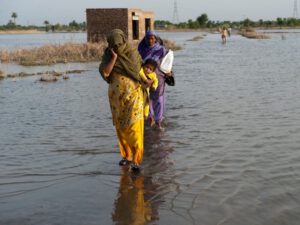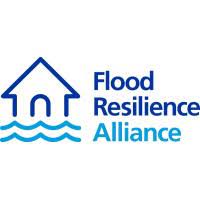Making The Case for Flood Resilience – Just Anticipating or Insuring Against Damage Is Not Enough
Flooding is one of the most disastrous natural disasters, having huge impacts on lives and assets. This is only going to get worse with increases in population, urbanisation, and economic development in hazard-prone areas, coupled with increasing frequency and intensity of extreme weather events resulting from climate change. For instance, Germany has been exposed to flooding in the Ahr valley in July 2021 with consequences, which were beyond imagination. More than 200 people died and the reconstruction of damaged buildings will take several years. This – and many more flood events across the globe – show the importance of strengthening the resilience of communities to flood risk.

PlanAdapt Supports the Zurich Flood Resilience Alliance
PlanAdapt supports the Zurich Flood Resilience Alliance (ZFRA) in its efforts to advocate for more integrated and holistic flood resilience globally. With the German government and other German key stakeholders (such as GIZ, BMWK, BMZ, Munich Climate Insurance Initiative) being influential global partners, the Alliance focuses on closer collaboration with them and sharing evidence that the Alliance has generated during the last decade. The Alliance is a multi-sectoral partnership and consists of humanitarian, NGO, research, and private sector partners who work together to increase public and private investment in evidence-informed community-based flood resilience. It aims to achieve the objectives through long-term, flexible community programmes, producing new research, sharing knowledge, and influencing key stakeholders on flood and climate resilience.
 The Alliance is currently operating in 250 communities, spread across the globe. One of the core pieces of its work is the ‘Flood Resilience Measurement for Communities’, a tool that allows users to generate evidence about the ways in which a given area or community is already resilient to floods, as well as providing a guide to further develop this resilience. Further, the Flood Resilience Portal contains many case studies and learning material around community-based flood resilience.
The Alliance is currently operating in 250 communities, spread across the globe. One of the core pieces of its work is the ‘Flood Resilience Measurement for Communities’, a tool that allows users to generate evidence about the ways in which a given area or community is already resilient to floods, as well as providing a guide to further develop this resilience. Further, the Flood Resilience Portal contains many case studies and learning material around community-based flood resilience.
PlanAdapt is currently working closely with 5 of the 9 partner organisations of the Alliance: Mercy Corps, IFRC (International Federation of the Red Cross and Red Crescent Societies), IIASA (International Institute of Applied Systems Analysis), LSE (The London School of Economics and Political Science) and Zurich (Zurich Insurance). Our work will focus on supporting the advocacy work of the Alliance in Germany, building on PlanAdapt’s network and experience within the German climate policy and finance landscape. We will answer core questions such as “Who are the main actors in the German Government, who are the key thought shapers in view of international climate policy and finance?” or “What models of advocacy have proven successful; which channels and networks are being used?” The answers will help the Alliance to deepen its advocacy work in Germany and inform future choices on relationship building and effective use of resources.
